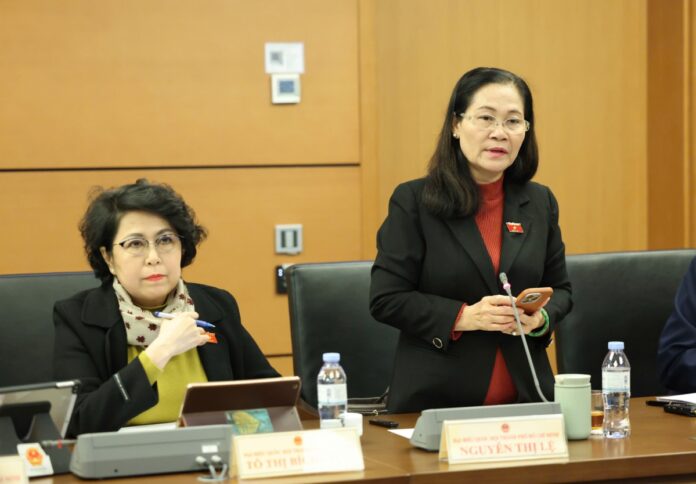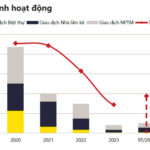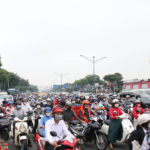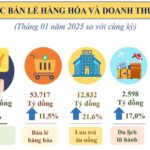In her speech to the Ho Chi Minh City delegation, delegate Nguyen Thi Le, Chairwoman of the Ho Chi Minh City People’s Council, emphasized that Ho Chi Minh City is a special urban area and the country’s largest economic center, with a population of over 10 million and a rapid urbanization rate. She pointed out that without a modern public transport system with high capacity, especially the urban railway system, the city would struggle to comprehensively address traffic congestion, environmental pollution, and infrastructure overload.
According to Ms. Le, after a long wait, the first metro line (Ben Thanh – Suoi Tien) was officially put into operation on December 22, 2024, and quickly proved its effectiveness, receiving an extremely positive response. The number of passengers exceeded expectations, significantly reducing traffic pressure in the eastern region of the city.
“This shows that people are willing to switch to using public transport if the metro system is well-invested, convenient, synchronized, and on schedule,” said Ms. Le.
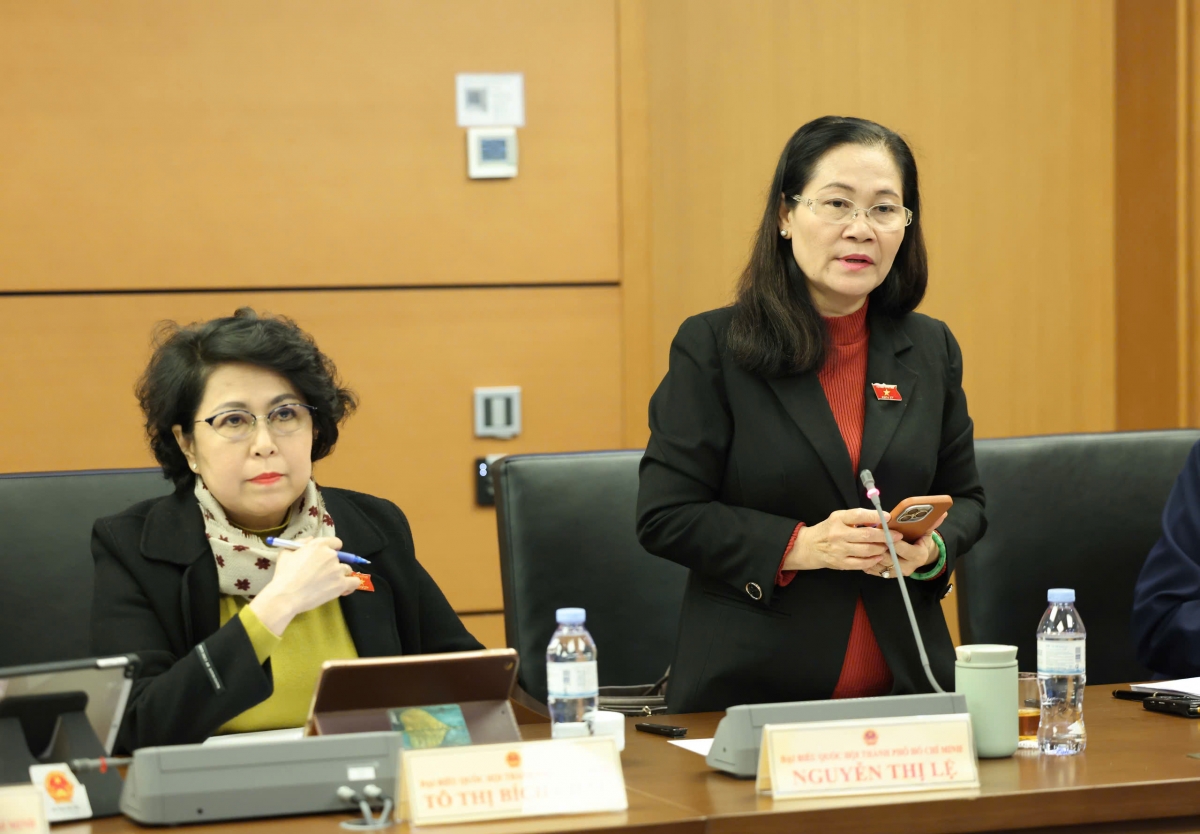
Delegate Nguyen Thi Le, Chairwoman of the Ho Chi Minh City People’s Council (right), and delegate To Thi Bich Chau at the Ho Chi Minh City delegation meeting. Photo: Van Phuc
However, Ms. Le also shared that the people’s expectations did not end with the first metro line. The second metro line (Ben Thanh – Tham Luong) has completed site clearance, but there is still a lack of strong mechanisms to quickly implement investment and construction.
Ms. Le affirmed that this metro line passes through many high-density residential areas and is a “backbone” in reducing traffic pressure in the northern and western regions of Ho Chi Minh City. Therefore, the early construction of this metro line is an urgent need of the city and a great expectation of the people of the city and its neighboring areas.
Additionally, the Chairwoman of the Ho Chi Minh City People’s Council pointed out that the remaining metro lines are still at the planning stage and cannot be implemented due to a lack of resources and implementation mechanisms. Without breakthrough solutions, the metro system will remain on paper, unable to be invested in promptly to play its intended role in modernizing the city’s urban transport system.
Delegate To Thi Bich Chau, also from the Ho Chi Minh City delegation, shared her thoughts on the draft resolution of the National Assembly on piloting a number of mechanisms and policies, especially for the development of the urban railway system in Hanoi and Ho Chi Minh City. She highlighted the strong investment in transportation in the South during this term: “I hope that after this term, the development of transportation in the South will contribute to economic growth. Because we are very sad to see long lines of trucks carrying goods from the provinces to Ho Chi Minh City or from Ho Chi Minh City to the provinces during Tet or other important occasions. I also hope that with the railway system for cargo transportation from the Mekong Delta, Central Highlands, and Central Coastal provinces, there will be breakthroughs and special mechanisms.”
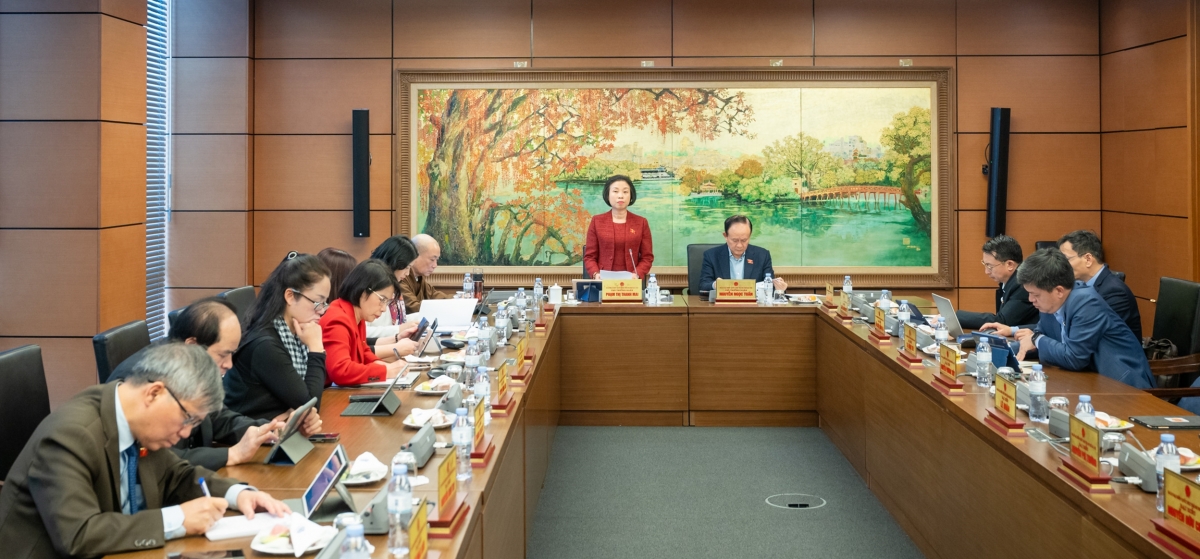
Hanoi delegation meeting on the draft resolution of the National Assembly on piloting special mechanisms and policies for the development of the urban railway system in Hanoi and Ho Chi Minh City. Photo: Media Congress
At the Hanoi delegation meeting, delegate Nguyen Phi Thuong emphasized the urgency of issuing a resolution by the National Assembly to address the difficulties and obstacles in the implementation of urban railway development in Hanoi and Ho Chi Minh City.
“The urban railway is considered the backbone of public passenger transport, solving the problem of traffic congestion and reducing environmental pollution in large cities,” said Mr. Thuong. “It also concretizes the implementation of Resolution 15/2022 of the Politburo on the development of Hanoi capital, Resolution 31 of the Politburo on the development of Ho Chi Minh City, and Conclusion 49 of the Politburo.”
The delegate highly appreciated the content of the Government’s proposal and basically agreed with the six groups of special and pilot policies included in the draft resolution submitted to the National Assembly for consideration and approval at this session. These mechanisms and policies have been carefully studied based on the inheritance of mechanisms and policies that have been effectively implemented in transport infrastructure investment in the past, combined with references to practical experiences from within and outside the country, as well as impact assessments during the implementation process.
“I believe that the National Assembly’s resolution on piloting a number of mechanisms and policies, especially for the development of the urban railway system in Hanoi and Ho Chi Minh City, which is to be approved this time, will meet the expectations of maximizing resource mobilization, untying investment knots, and creating breakthroughs in urban railway investment in Hanoi and Ho Chi Minh City,” Mr. Thuong emphasized. “It will also help realize the development goals of the country in line with the spirit of Resolution XIII of the Party.”
The Power of Modern Distribution Channels in Driving Festive Season Sales
The Lunar New Year of the Snake 2025 witnessed an increase in consumer spending, yet prices for essential goods remained relatively stable. The market steadied amidst a shift in consumer behavior, with a growing trend towards mindful spending.
Unleashing the Power of Words: Crafting Captivating Copy for a Vibrant City
Unveiling the Economic Pulse of Ho Chi Minh City: Positive Growth with Retail Leading the Charge
The Ho Chi Minh City economy in January 2025 witnessed positive growth, especially in retail and consumer services, with revenue reaching nearly VND 108,000 billion. Moving forward, the city will continue to focus on key tasks, accelerate public investment disbursement, and promote administrative reform.

